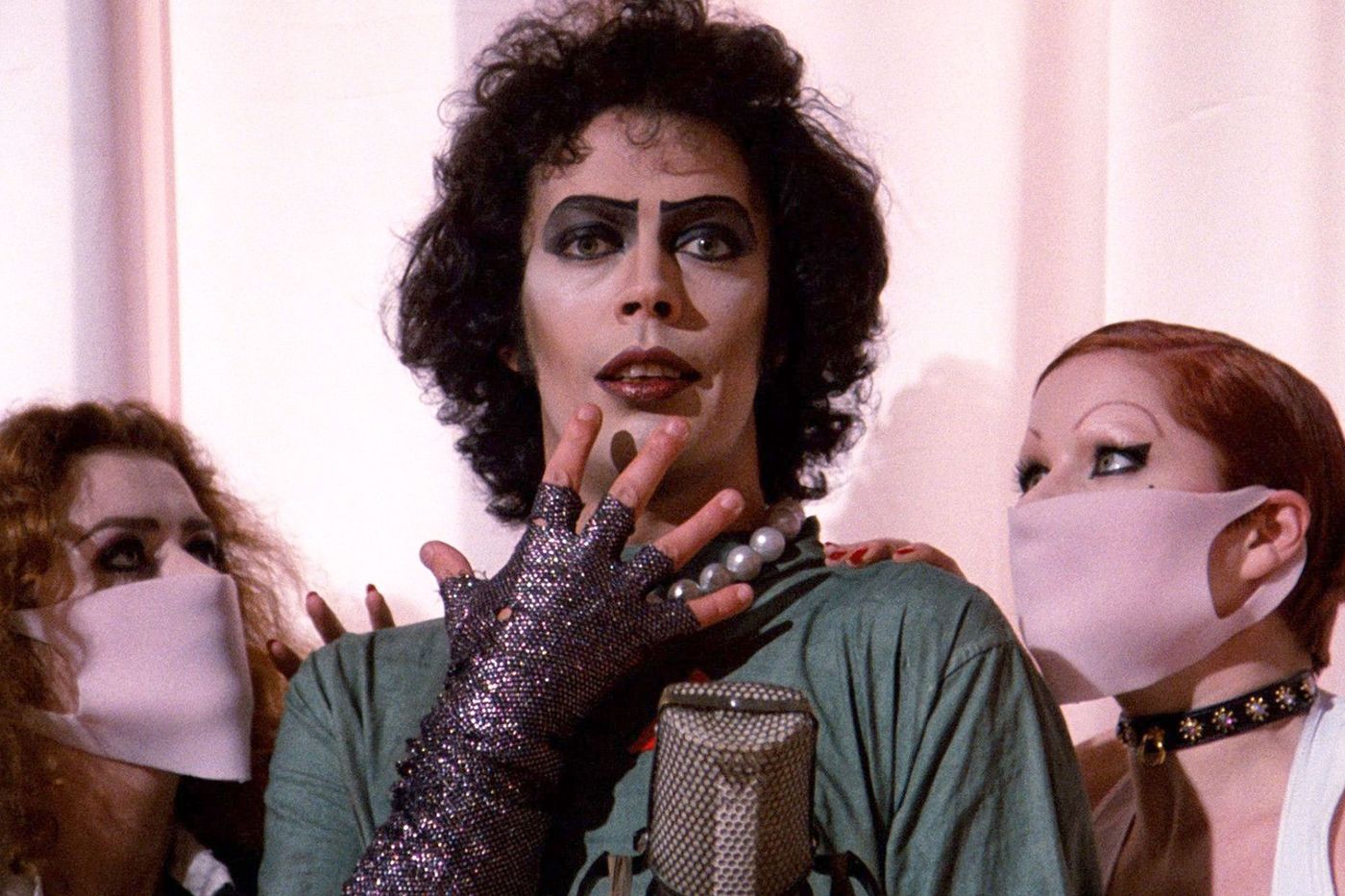deleted by creator
That is a good point, but analog clocks are IMHO in the realm of sundial clocks or audio casettes or floppy discs. Technology that was once usefull, but now it’s replaced by better alternatives. Time is after all just a number, and it does not matter how we choose to represent it.
Digital isn’t better it’s just different. Also a tonne of wristwatches are still analogue.
Wristwatches are just jewelry at this point tbh. They’ve been rendered completely redundant by cell phones. The only people under 60 who wear them are doing so as a fashion statement.
I’m sure a lot of wristwatch stans will downvote me but I don’t care I’m still right
Wristwatches don’t have the negative psychologically addictive and anxiety-producing effects of smartphones
I use my wristwatch all the time to take dogs’ pulses.
Having a cell phone next to a grumpy dog is asking for a broken cell phone. I’m sure people in other fields need wristwatches as well.
Just because you don’t use them don’t mean they’re not useful.
I’m a watch nerd with a collection of mechanical watches and I’m not going to downvote you because you’re right. I wear them because I like them even though I know they are anachronistic. I can’t remember the last time I interacted with somebody significantly younger than me who was wearing a watch, and as I said, I’m a watch nerd, someone’s watch is one of the first things I notice about them.
I will say that they are occasionally more convenient than other places I could check the time but I’ve built my life in such a way that I very rarely have to care about what time it is and I go weeks at a time without checking the time, just wearing them because I’m fascinated by tiny gears and springs doing their business and I like the feeling of it on my wrist.
For office attire or going out, sure.
If you’re doing repair work, running lines, etc, a watch is the choice. Your hands are busy, so a watch is what you need (Except for specific trades where you don’t want to risk it getting caught in machinery).
I can say with 100% certainty that I know large swaths of folks in their 20’s and 30’s who regularly wear watches. Some smart, some digital, some analog.
Are they going anywhere, tho? They start cheap and are very energy-efficient, so I think they’d stay. If there is a probability to face them IRL it won’t be bad to learn how to read them.
It’s not better, it’s just different, your comparison is flawed.
Personally, I prefer analog watches for most cases, because it’s much easier for me to do calculations visually. To add 6 to 7/19 on a digital clock I need to turn on my math brain (19+6=25, 25>24 => 25-24=1), but on an analog watch I can just visually read the number opposite of 7.And that’s just one example, there are other cases, besides just being easier to read at a glance. I’ve used both digital and analog watches since birth, but analog watches are marginally better for daily use, where to the second precision isn’t necessary.
100% it is antiquated technology.
I know, it’s just a meme, but… The article. It’s about clocks during exams specifically, when students are under pressure and more likely to misread the time on an analogue clock.
Thanks for expounding upon that. It’s shit like this that gets spread around and older gens pat themselves on the back while shaking their head at the younger gen for not knowing something, despite it being taken out of context or even straight up false.
deleted by creator
IMO all the more reason to keep them. In the real world we all have to perform under pressure. With practice they can learn to read the clock under pressure, maybe take a breath or two and slow down before trying to read it. It may be a simple hurdle to overcome but practicing overcoming these things is important for development.
You’re right it’s good to prepare young people for challenges. Still, that should mean challenges that would come up anyways, not artificially making things more difficult.
It’s good to know how to read an analog clock, just like it’s good to be able to read cursive. But both of them are outdated and aren’t inherently required in day to day life. Inserting them into a testing situation that’s meant to test something else is creating an unnecessary challenge.
There are tons of equipment and tools out there that very closely resemble an analog clock and require the same skills. Pressure gauges for example. These skills are not out dated.
Except, a pressure gage reads the number it’s pointing at. Not 1 hand means the number it’s pointing at and the other means 5 times the most recent digit passed plus 1 for each tick mark.
I’d wager that most people would never even see a pressure gage with two hands. Dual-indicating double-bourdon tube differential pressure gages are quite rare in the real world. Usually for that kind of application you’d go digital.
If only there was a building children could attend where they do things like teach how clocks work
Seriously! I’m pretty sure that was part of 1st or 2nd grade. Maybe both…
The problem is unless you really use the skill a lot you’re not really gonna learn it from school. I had to teach myself how to read analog clocks in highschool cause even though I’m pretty sure I learned it in elementary school I grew up with computers and eventually smart phones so I never had to use it.
Edit: Also for context I was born in 2001
We had one in every classroom. So we only had to look at it for reinforcement of the original lesson.
We had them too but at least for me in elementary school I didn’t really care what time it was. I remember I knew what position on the clock meant school was done but other then that didn’t really need to read it cause the teachers would just bring us as a class to whatever our next class was for that day. By the time I got old enough to start caring smartphones were prevalent enough that I never really needed to learn how to read a clock. It wasn’t until highschool where teachers got more strict about enforcing no phones out in class that I then learned how to read clocks so I could know when class would be done.
In my elementary school we even had clocks, where the numbers were large dice the teacher could take out and rotate so they showed ½, 30 or 18 instead of 6, for example. It’s not hard to learn, if you’re at a school. But then again, digital clocks are so everpresent that it might not actually matter…
Gather round, children, time to learn how to use a dial up modem, and after that we’ll go over Morse code.
Alternate title: Students cannot tell the time because schools are removing analog clocks from the classroom
My first thought was to be appalled at the lack of education on display… But is there any real reason to keep analog clocks… other than habit and nostalgia?
Other than the things already mentioned, you can read analog clocks easily from great distances, as long as the handles and the face have appropriate contrast (e.g. black on white). Even with impaired vision and large distance, being able to discern the rough position of black smudges on white background is enough to tell the time. This is not possible with a digital clock, because you can’t distinguish between the digits as easily. Therefore, I’d certainly argue their much better for legibility in the back of a classroom or a lecture hall.
Or on big-ass clock towers that are supposed to be visible from a large part of the surrounding area.
Well you can use the clock for giving headings. “that tree at 10”. Then you have historical and ornamental clocks which might be nice to read. Like you can not design a digital clock to look as good as an analog one.
But yeah. Probably not many reasons really
Accessibility.
We will never get rid of the analogue clocks from our school, we’re an adult education and alternative model highschool qualifications centre.
We primarily teach adults with no to low English, adults and teens with disabilities, and adults and teens refered via corrections services.
There is a significant level of illiteracy within numeracy, and for some of our students, it’s not a failing of the education system, it’s just a fact of life given their specific circumstances (eg, acquired brain injuries are common among our students)
Some students can learn to tell time on an analogue clock even if they didn’t know before.
But even my students who will never in their life be able to fully and independently remember and recall their numbers can tell the time with an analogue clock.
I tell my students “we will take lunch at 12pm, so if you look at the clock and the arms look like this /imitates a clock/ we will go to lunch”
And now I avoid 40 questions of “when’s lunch?” because you don’t need to tell time to see time with an analogue clock, they can physically watch the hands move, getting closer to the shape they recognise as lunch time.
And my other students can just read the time, from the clock, and not feel infantalised by having a disability friendly task clock like they’ve done at other centres I work at - they’ve had a digital clock for students who can tell time, and a task clock as the accessible clock. But a well designed face on an analogue clock can do both.
I myself have time blindness due to a neurological/CRD issue, so analogue clocks, and analogue timers are an accessibility tool for me as well, as the teacher.
My first thought was “yes”, my second thought was “actually, maybe not?” and my third thought was reading the word clockwise in another comment which would need to be replaced with another word to indicate direction around an axis and its opposite
You can certainly make an argument for young kids, i.e. teaching fractions and literally how to count (counting seconds).
Teenagers? No, not really. They’ll all have phones or something to tell the time by a certain age and hopefully they know their fractions / how to count. It might as well just be digital at that point.
Clocks were invented before electricity. If an EMP took out all the electronics, a mechanical clock is still the best way to measure longitude at sea
While true, most clip is are quarts oscillators These days so would die also. That said, love me a mechanical clock and have a skeleton watch I daily drive.
The swiss will never get rid of their iconic railway clocks
It’s a cheap and easy way to teach children to visualize.
This has got to be rage bait like the litterbox thing right?
Yup. Of course it is and half of the comment section is falling for it.
Litter box thing? I thought it was just my half wit town who believed in that bullshit.
My mother in law informed me that the left wants kids to have access to litter boxes and all kinds of stuff. She swears her friend said it’s true. I told her to her face that she’s been duped but you know she’s a bit too far and drank the juice.
There’s probably someplace kids could go to learn about analog clocks…
A flavorflav concert?
No one knows how to read a sextant any more. The horror!!
Analog clocks are not really essential technology.
I heard they’re gonna remove schools because kids show up to them not knowing anything.
Florida is getting rid of all the books at least.
Feels more like we should teach kids better rather than remove the clocks.
Perhaps we should start paying teachers so that we attract more intelligent ones with more passion
I’ve worked in 2 different schools in the IT department and 4 others as a volunteer lecturer (I got a name tag that said Technology Evangelist) I found that putting an analog clock on the screen saver of computers in the classroom was more likely to result in the clock actually being on time.
Too many clocks in classrooms are very old or even battery powered but neglected.
I don’t think kids are dumb just they aren’t getting a world that is properly maintained by competent people that care about their work and are adequately resourced to do the whole job.
deleted by creator
Well, in Germany… depending on the school and people, we cared a lot for those clocks and maintained them well
Sounds like a fake article
bruh I can read analogue clocks and I’m gen z. it’s probably rage bait though, so who cares :/
I don’t believe this for a second. You can literally just look at it and intuitively understand. Not to mention part of the standard elementary school curriculum is how to read a clock.
Wait…you think those are intuitive? Fuck no.
Who’s going to intuitively know that “long hand pointing at 2” means “10 minutes after the hour”? Also, having the long hand for minutes is super unintuitive when hours are longer than minutes.
May not be super intuitive, but getting rid of them is intellectually lazy. If you know an hour is 60 minutes, it makes enough sense.
If an hour is 60 minutes, 60/12 is 5 minutes per number on the clock. Long hand is minutes because there are more minutes in a day than hours. Or at least that’s how I can rationalize it.
If you can explain an analog clock that quickly, it’s just lazy for them to not learn it. It also has cross application to make people more comfortable with mental math and multiples commonly seen in trigonometry.
Minutes are the smaller time division with 60 possible values so that hand is longer to reach to the tick marks for easier reading of the exact minute.
The hour hand only needs to distinguish between 12 possible values that are more spread out around the perimeter, so it doesn’t need to reach very far to tell which hour out of 12 it is.
Kids these days do absolutely still know how to read analog clocks.
Besides, they probably shouldn’t put effort into that. Those things are close to useless nowadays. It’s mostly a case of schools being conservative… but then, it’s not that much of an effort, so there are more important things to care about.
I do know how to read an analog clock, but I dont read it subconciously, because my brain works on digital time, so I will have to look at it and then figure out what that time is if it were on a digital clock.
So if I see an analog clock I would rather look at my phone because that is just quicker than doing the conversion.
If you want to know more, look at the video Technology Connections (2?) did about it.
I read analogue clocks subconsciously, converting them automatically to 24h time.
Actually, a lot don’t. I mean, like, at least fifty percent. You would be surprised. I don’t think it’s schools being conservative so much as it didn’t occur to teachers and staff that analogue clocks are frankly obsolete (I still like them). I didn’t read this article, but it sounds like that’s being corrected.
Anyways, I really respect your attitude that it’s not worth getting bent out of shape or spending a lot of time on, I think you’re right. A lot of people get precious about it or, worse, make fun of kids like they’re stupid because they haven’t wasted their time learning to read, essentially, a sundial.
Not sure about that. For high school math it is still quite important that students are familiar with circles and angles on circles. Analogue clocks are a gentle introduction to this.
I’m guessing they know how, but it’s not as quick as just glancing at it. I mean fuck I’m in my 40s but that’s true for me, too.















